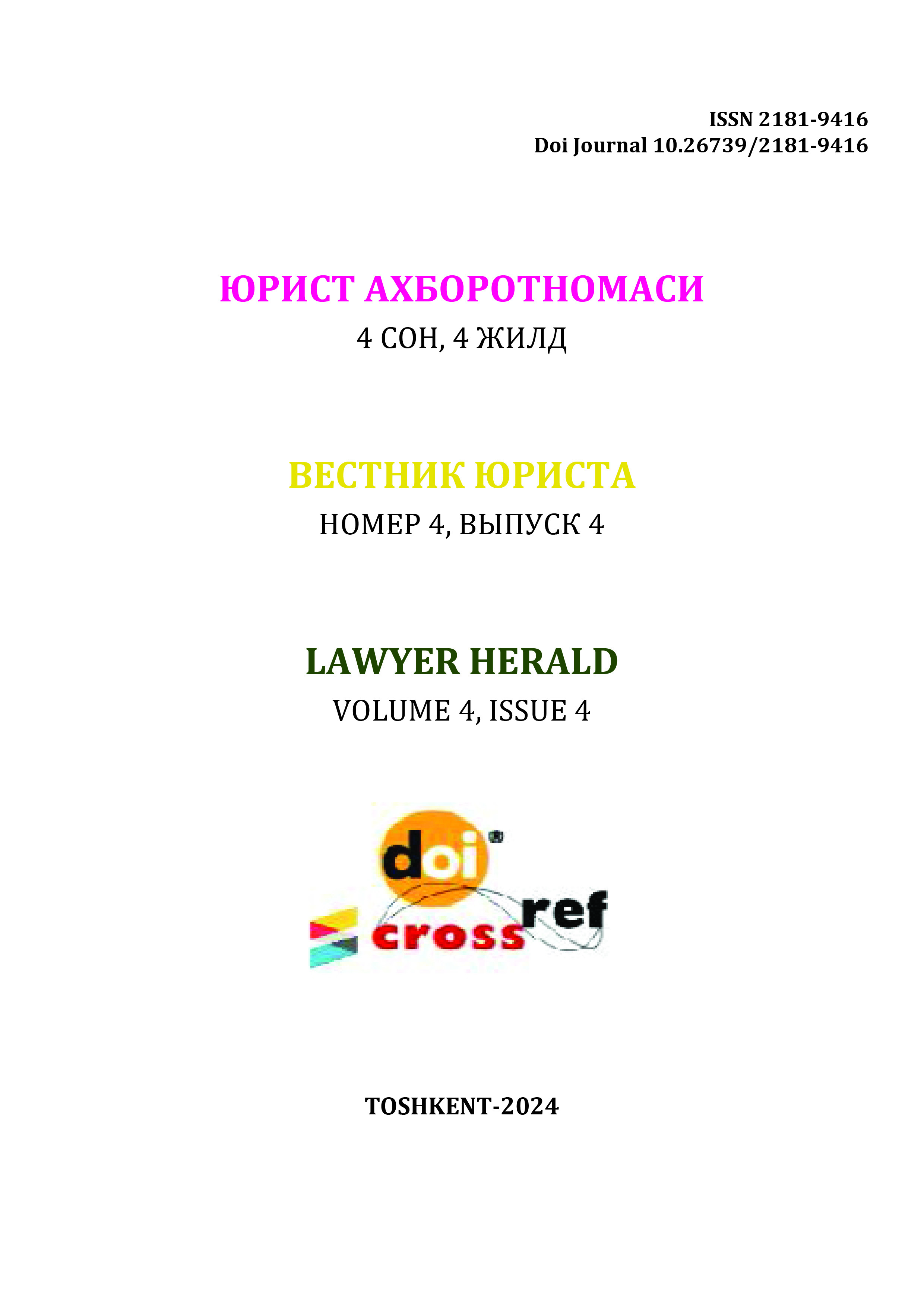Abstract
In the context of modern globalization, atypical forms of employment can be observed in the labor markets of developed countries. Although a labor contract has been concluded between the parties, some of its conditions differ from traditional employment relationships, making these forms of employment distinctly different. Some scholars also include fixed-term labor contracts in these forms. The reason is that in some developed countries, fixed-term labor contracts differ not only in duration from indefinite labor contracts but also in that employees are deprived of certain guarantees. Such distinctions are not present in our national legislation. This article analyzes whether a fixed-term labor contract is considered an atypical form of employment or not, and the author attempts to prove her scientific theory.
References
М.Ю.Пинтаева. Терминология и понятия стандартной и нестандартной занятости. «Экономика и социум», №6(61), 2019. // URL: https://cyberleninka.ru/article/n/terminologiya-i-ponyatiya-standartnoy-i-nestandartnoy-zanyatosti;
Smirnykh, Larisa, and Andreas Wörgötter. “The Importance of Institutional and Organizational Characteristics for the Use of Fixed-Term Contracts in Russia.” Journal of East European Management Studies, vol. 24, no. 1, 2019, pp. 89–121. JSTOR, // URL: https://www.jstor.org/stable/26617458. Accessed 14 Aug. 2024.24(1), 89-121.
Baranowska, A., Gebel, M., & Kotowska, I. (2011). The role of fixed-term contracts at labour market entry in poland: stepping stones, screening devices, traps or search subsidies?. Work Employment and Society, 25(4), 777-793. // URL: https://doi.org/10.1177/0950017011419705;
Нестандартные формы занятости. Анализ проблем и перспективы решения в разных странах. Обзорная версия. Международное Бюро Труда – Женева: МБТ, 2017. // URL: https://www.ilo.org/sites/default/files/wcmsp5/groups/public/@dgreports/@dcomm/@publ/documents/publication/wcms_554952.pdf;
O‘zbekiston Respublikasining Mehnat kodeksi. 22.10.2024 // URL: https://lex.uz/ru/docs/-6257288#-6261522;
Lafuente, E. and Berbegal-Mirabent, J. (2017). Contract employment policy and research productivity of knowledge workers: an analysis of spanish universities. The International Journal of Human Resource Management, 30(16), 2360-2386. // URL: https://doi.org/10.1080/09585192.2017.1323226;
Hannerz, H., Burr, H., Soll-Johanning, H., Nielsen, M., Garde, A., & Flyvholm, M. (2022). Fixed-term contract positions, unemployment and mental ill health: a danish cohort study. BMC Public Health, 22(1). // URL: https://doi.org/10.1186/s12889-022-14137-1;
Pérez, J., Marinescu, I., & Castelló, J. (2016). Can fixed-term contracts put low skilled youth on a better career path? Evidence from spain. // URL: https://doi.org/10.3386/w22048;
Labour Code of the Republic of Albania, LAW No. 7961, dated 12.7.1995 // URL: https://euralius.eu/index.php/en/library/albanian-legislation?task=download.send&id=144&catid=116&m=0;
Non-standard forms of employment in selected countries in Central and Eastern Europe. International Labour Organization 2021. // URL: https://www.ilo.org/sites/default/files/wcmsp5/groups/public/@europe/@ro-geneva/@sro-budapest/documents/publication/wcms_793096.pdf;
The Labour Law (“Official Gazette of the Republic of Serbia”, Nos. 24/2005. // URL: https://www.paragraf.rs/propisi/employment-act-republic-serbiahtml.
